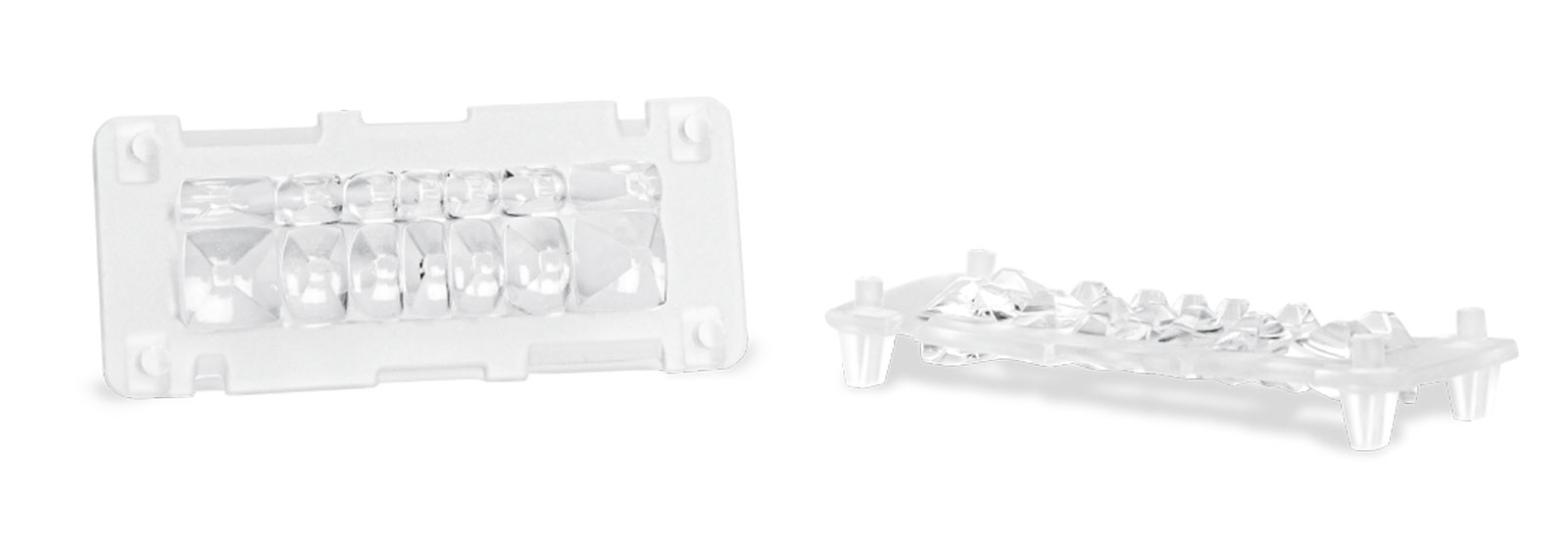由于其特殊的性能,液体硅橡胶在各个领域均有广泛应用:如医药,食品,电子,机械,甚至在公共卫生,体育和文化娱乐行业也有应用。

The two-component mixtures belong to the group of high-temperature vulcanising rubbers, i.e. the reaction starts under heat supply with no decomposition products being formed. For setting the processing time, one of the two components has an inhibitor which is also called pot-life controller. The other component is fed by a catalyst. Crosslinking (vulcanization) starts owing to the influence of the mould temperature, usually between 160°C and 220°C. Then, however, the reaction is very fast with approximately 5 s/mm wall thickness. As a result of this, it is possible to achieve shorter cycle times thanks to the use of LSR compared to classic elastomers. Specific manufacturing process requirements such as mould degassing, material feed, demoulding technology are realised by SDG through integrated solutions or user-friendly interfaces.
The modular concept of Sumitomo (SHI) Demag injection moulding machines allows using both hydraulic and electrical machine technology. Stability of process parameters is the deciding factor for achieving the required quality. This is why Sumitomo (SHI) Demag attaches the greatest importance to a precise and exactly repeatable pressure and speed control. Special screw geometries attuned to the requirements of LSR processing and non-return valve design (disc non-return valve, activeLock) ensure processes with an extremely high repeatability precision.
Benefits of liquid silicone rubbers
Physiologically non-toxic
Odourless and tasteless
Good transparency
Very good haptic and elastic properties
Very good weathering and ageing resistance
High-temperature resistant (continuous operating temperature possible up to 180°C)
Low-temperature resistant and flexible towards low temperatures down to -50°C
Sterilizable
Non-adhesive, water-repellent surfaces